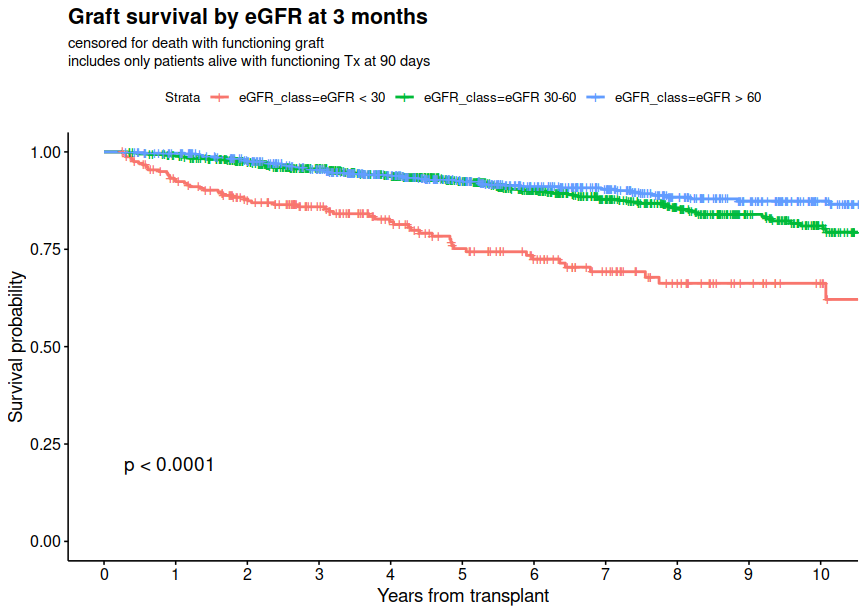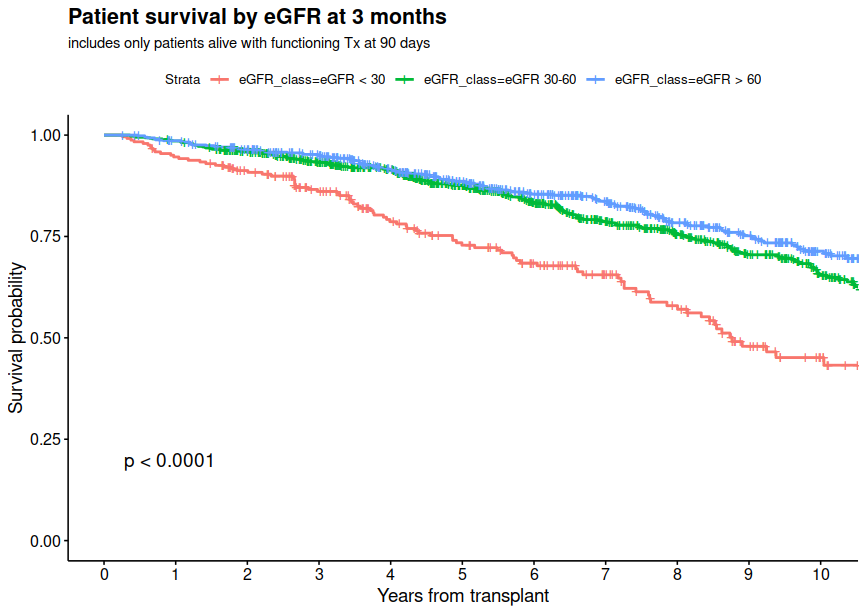Is renal graft function at 3 months a reliable predictor to graft and patient survival?
Joanne Devlin1,2, Emma Aitken1,2, John Asher1,2.
1Renal and Transplant Unit, Queen Elizabeth University Hospital, Glasgow, United Kingdom; 2ICAMS, University of Glasgow, Glasgow, United Kingdom
Introduction: Whilst there is controversy in how and what is used to define a successful transplant, there is wide consensus that eGFR at 1 year is a good predictor long term graft outcome. With disparities in organ supply and demand remaining a concern and aging populations in both donors and recipients, increasing risk acceptance to improve utilisation will be increasingly important and early warning signs of poor outcomes will be helpful in evaluating changing practice. We therefore wanted to determine if early graft function would be a useful prognosticator.
Methods: We retrospectively reviewed all transplants conducted in our unit over a 10-year period, from 2012 to 2022 and looked at their eGFR at 3 months post-transplant. As the interquartile range was 36-70, we subdivided them into 3 groups, eGFR less than 30, 30-60, and greater than 60. We then reviewed graft and patient survival at up to 10 years, excluding from each any events before 90 days.
Results: Graft survival censored for death with functioning graft, was found to be lower in patients with eGFR <30 at 3 months, with 5- and 10-year graft survival of 75.2% and 66.3%, compared with 92.3% and 81.0% in the eGFR 30-60 group; and 92.5% and 87.4% in the eGFR >60 group (Logrank p<0.0001).

Patient survival was similarly lower in the group with eGFR <30 at 3 months, with 5- and 10-year patient survival of 72.9% and 45.1%; compared with 87.6% and 65.4% in the eGFR 30-60 group, and 88.6% and 71.4% in the eGFR >60 group (Logrank p<0.0001).

Conclusion: We concluded that 3-month eGFR is a predictor of graft and patient survival. Whilst important in all transplant patients, it will be of particular importance to those marginal transplants and marginal patients where earlier prediction of longer-term outcome data may be useful in an agile approach to service improvement in organ utilisation decisions or post-transplant care protocol reviews.
[1] kidney
[2] renal
[3] transplant
[4] survival
